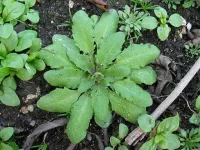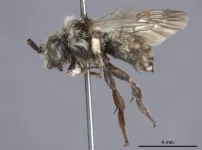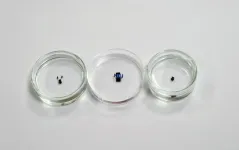Accomplished University of Ottawa professors earn Canada Research Chairs
The University of Ottawa has been awarded four new Canada Research Chairs
2021-06-15
(Press-News.org) The University of Ottawa has been awarded four new Canada Research Chairs (CRC) that will strengthen its expertise in artificial intelligence, health and law. The University is also proud to announce the renewal of two CRCs that will conduct leading-edge research in quantum communications and photonics.
"The Canada Research Chairs Program provides invaluable support to our researchers as they forge their paths of discovery at a world-class level," said Sylvain Charbonneau, vice-president, research. "The results of this most recent competition will undeniably help the University succeed in pursuing our goals of excellence, relevance and research impact."
The three new Tier 1 Canada Research Chairs are:
Khaled El Emam (Faculty of Medicine and CHEO Research Institute) -- Canada Research Chair in Medical Artificial Intelligence
Khaled El Emam's research will focus on developing a methodology for the synthesis of complex health data. This means applying artificial intelligence techniques to model personal clinical and biological information stored in databases. These models can be used to generate virtual patients that mimic the characteristics of real patients. This solves data-sharing problems and enables adding simulated patients to accelerate clinical studies.
Rita Horvath (Faculty of Medicine and CHEO Research Institute) -- Canada Research Chair in Mitochondrial Disease Pathogenesis to Therapy
Mitochondrial diseases are genetic disorders that are difficult to diagnose and cause a range of devastating physical, developmental and intellectual disabilities. Rita Horvath's research aims to understand the molecular mechanisms of mitochondrial disease, to provide accurate diagnosis and develop targeted therapies.
Carole Yauk (Faculty of Science) -- Canada Research Chair in Genomics and the Environment
Carole Yauk's research addresses an urgent need to modernize the toxicological risk assessment of environmental chemicals. She will develop and deploy genomics approaches that measure how toxic chemicals can alter the function of genes or damage genetic material. Her laboratory will work with regulatory and industry partners to determine the best use of this information, to predict toxicological risks to humans and wildlife.
The new Tier 2 Canada Research Chair is:
Emmanuelle Bernheim (Faculty of Law, Common Law Section) -- Canada Research Chair in Mental Health and Access to Justice
Emmanuelle Bernheim's research looks at improving access to the justice system for diverse groups, particularly those living with mental health issues, while focussing on community, political and research circles.
The two renewed Tier 2 Canada Research Chairs are:
Ksenia Dolgaleva (Faculty of Engineering) -- Canada Research Chair in Integrated Photonics
Photonic integration uses light for applications traditionally performed by electronics. Combining a laser source, waveguides that direct light and other optical components on a small semiconductor chip, photonics has a number of uses in areas such as medicine, information and communication technologies, and sensing. Ksenia Dolgaleva's research aims to increase the functionality of existing optical chips by developing integrated optical devices that can manipulate light in new ways. These devices will be able to change the colour of incident light and manipulate light with light. This is essential to all-optical processing of information channels without needing to convert them to an electrical current.
Ebrahim Karimi (Faculty of Science) -- Canada Research Chair in Structured Quantum Waves
Ebrahim Karimi's research program uses structured quantum waves to enhance capabilities and open new horizons in quantum communication protocols, simulators and sensing. Robust yet compact devices will be designed to efficiently structure electron and optical beams, increasing the security and capacity of information transmission -- the key to establishing the first quantum network across Ottawa -- as well as measuring and analyzing materials properties quickly on a small scale.
INFORMATION:
[Attachments] See images for this press release:

ELSE PRESS RELEASES FROM THIS DATE:
2021-06-15
A review of more than 9,000 U.S. patients with severe COVID-19 infection showed less than 1% contracted the illness again, with an average reinfection time of 3.5 months after an initial positive test. Those are the findings from a study conducted by researchers from the University of Missouri School of Medicine and MU Health Care.
The researchers teamed up with the MU Institute for Data Science and Informatics and the Tiger Institute for Health Innovation to review data from 62 U.S. health care facilities. They found 63 of the 9,119 patients (0.7%) with severe COVID-19 infection contracted the virus a second time, with a mean reinfection period of 116 days. Of the 63 who were reinfected, two (3.2%) died. Patients categorized as ...
2021-06-15
Plants evolve specialised defence chemicals through the combined effects of genes, geography, demography and environmental conditions, a study published today in eLife reports.
The findings reveal a pattern in the types of defence chemicals plants produce across Europe, and describe some of the evolutionary processes that create them.
As plants are immobile organisms, they rely on producing defence chemicals called specialised metabolites for survival. Specialised metabolites have extensive variation in their structure, such as the number of carbon molecules ...
2021-06-15
June 15, 2021 - Canadian researchers have discovered that a bee thought to be one of the rarest in the world, as the only representative of its genus, is no more than an unusual specimen of a widespread species.
Scientists with the Canadian Museum of Nature (CMN) and York University have reclassified the mystery bee, collected somewhere in Nevada in the 1870s, as Brachymelecta californica. They note that it's an aberrant individual of a species, the California digger-cuckoo bee, that is part of a group that includes five other species. All are cleptoparasitic bees, with females that lay eggs in the nests of digger bees. Brachymelecta californica itself is known to be widespread ...
2021-06-15
A recent UCLA clinical trial has shown encouraging results in helping daily smokers who are also heavy drinkers quit smoking and cut down their alcohol intake.
The study of 165 people tested two prescription drugs -- varenicline, for smoking addiction, and naltrexone, which is used to treat alcoholism. Studies have shown that varenicline, marketed under the brand name Chantix, may also be effective in reducing alcohol consumption.
Participants, who ranged in age from 21 to 65, smoked at least five cigarettes a day, with male participants generally consuming more than 14 drinks a week and women more than seven per week.
Over the 12-week study period, each participant received 2 milligrams of varenicline twice a day. Roughly half the group -- 83 participants -- also received a 50-milligram ...
2021-06-15
Hippopotamus aren't the first thing that come to mind when considering epidemiology and disease ecology. And yet these amphibious megafauna offered UC Santa Barbara ecologist Keenan Stears(link is external) a window into the progression of an anthrax outbreak that struck Ruaha National Park, Tanzania, in the dry season of 2017.
Through surveys and GPS monitoring, Stears and his colleagues, Wendy Turner, Doug McCauley and Melissa Schmitt, revealed that reduced dry-season flows in the Great Ruaha River indirectly spread the disease by affecting hippo movement. The results, which appear in the journal Ecosphere(link is external), present a unique perspective on disease ecology and illustrate how anthropogenic changes can impact wildlife and human health.
The ...
2021-06-15
A team of scientists at Nanyang Technological University, Singapore (NTU Singapore) has developed millimetre-sized robots that can be controlled using magnetic fields to perform highly manoeuvrable and dexterous manipulations. This could pave the way to possible future applications in biomedicine and manufacturing.
The research team created the miniature robots by embedding magnetic microparticles into biocompatible polymers -- non-toxic materials that are harmless to humans. The robots are 'programmed' to execute their desired functionalities when magnetic fields are applied.
The made-in-NTU robots improve on many existing small-scale robots by optimizing their ability to move ...
2021-06-15
Is artificial intelligence the key to preventing relapse of severe mental illness?
New AI software developed by researchers at Flinders University shows promise for enabling timely support ahead of relapse in patients with severe mental illness.
The AI2 (Actionable Intime Insights) software, developed by a team of digital health researchers at Flinders University, has undergone an eight-month trial with psychiatric patients from the Inner North Community Health Service, located in Gawler, South Australia.
The digital tool is tipped to revolutionise consumer-centric timely mental health treatment provision outside hospital, with researchers labelling it as readily available and scalable.
In the trial of 304 ...
2021-06-15
Exposure to the rhinovirus, the most frequent cause of the common cold, can protect against infection by the virus which causes COVID-19, Yale researchers have found.
In a new study, the researchers found that the common respiratory virus jump-starts the activity of interferon-stimulated genes, early-response molecules in the immune system which can halt replication of the SARS-CoV-2 virus within airway tissues infected with the cold.
Triggering these defenses early in the course of COVID-19 infection holds promise to prevent or treat the infection, ...
2021-06-15
Researchers from The Australian National University (ANU) have developed new technology that allows people to see clearly in the dark, revolutionising night-vision.
The first-of-its-kind thin film, described in a new article published in Advanced Photonics, is ultra-compact and one day could work on standard glasses.
The researchers say the new prototype tech, based on nanoscale crystals, could be used for defence, as well as making it safer to drive at night and walking home after dark.
The team also say the work of police and security guards - who regularly employ night vision - will be easier and safer, reducing chronic neck injuries from currently bulk night-vision devices.
"We have made the invisible visible," lead researcher Dr Rocio Camacho Morales said. ...
2021-06-15
Data collected for over two decades shows that rising Baltic Sea water temperature is one of the main factors in the increasingly earlier appearance and faster growth of Baltic herring larvae.
Baltic herring (Clupea harengus membras) is commercially the most important fish species in Finland, and an important part of the Baltic marine ecosystem. Conditions during herring spawning may have cascading effects on the whole Baltic ecosystem.
According to a recent research, both developmental stages in Baltic herring larvae, small and large, have shifted their timing to earlier dates.
"This suggests that herring spawn earlier and larvae grow faster, by about 7.7 days per decade. Water ...
LAST 30 PRESS RELEASES:
[Press-News.org] Accomplished University of Ottawa professors earn Canada Research Chairs
The University of Ottawa has been awarded four new Canada Research Chairs





